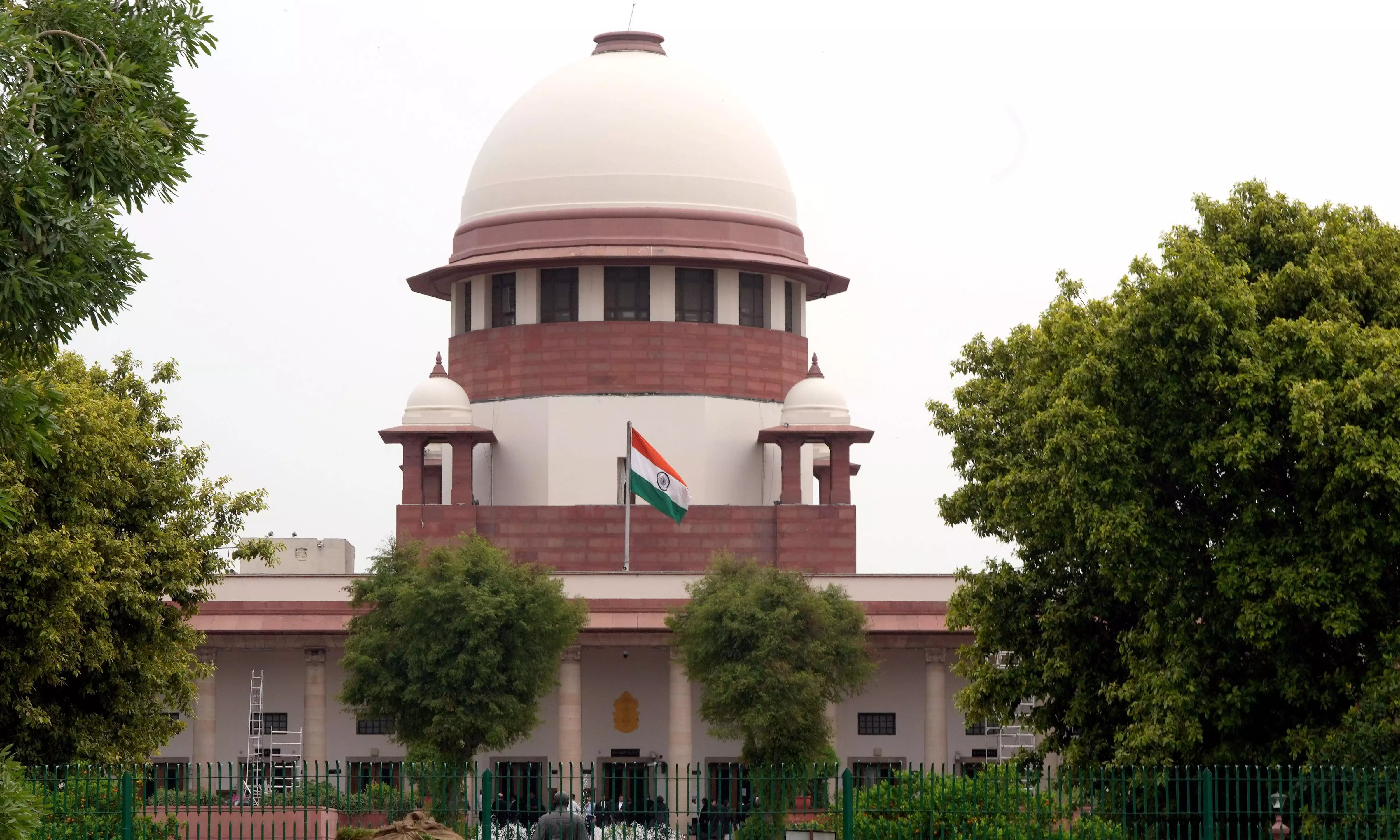SC agrees to hear plea against FIR under UP Gangsters Act

New Delhi: The Supreme Court has agreed to hear a plea challenging an Allahabad High Court order that dismissed an application seeking quashing of a chargesheet and proceedings under the Uttar Pradesh Gangsters and Anti-Social Activities (Prevention) Act.
A bench comprising Justices Sudhanshu Dhulia and Ahsanuddin Amanullah on December 2 granted leave to hear the special leave petition filed by petitioner Raj Khan and posted the matter for final arguments after hearing both sides.
The petitioner, represented by senior Advocate Gaurav Agarwal and advocate Tanvi Dubey, argued that the FIR lodged against him under the UP Gangsters Act was baseless and stemmed from a previous FIR.
The plea contended that the registration of the FIR constituted a gross abuse of the legal process and argued that invoking the Gangsters Act against the petitioner was prejudicial and amounted to a misuse of the police and judicial machinery.
It alleged that the proceedings were initiated on account of a personal vendetta after he lodged a complaint with the chairman of the Sunni Central Waqf Board over alleged financial irregularities.
"The filing of the chargesheet and initiation of proceedings against the petitioner is prima facie malicious, intended to wreak vengeance due to a personal grudge," stated the plea.
It emphasised that the petitioner had no criminal record apart from the case in question and the proceedings under the Gangsters Act infringed upon his right to life and personal liberty guaranteed under Article 21 of the Constitution.
The plea therefore urged the court to quash the chargesheet and all related proceedings, claiming the case against him was a ploy to silence his dissent against corruption within the Waqf administration.
"The high court failed to consider that the petitioner who is an innocent citizen has fallen prey to the hands of miscreants for raising his voice against the fraud, misdeeds and misuse of the income generated from the Waqf properties," it said.
The court would, during the final arguments, deliberate on the merits of the petition.�
Next Story

